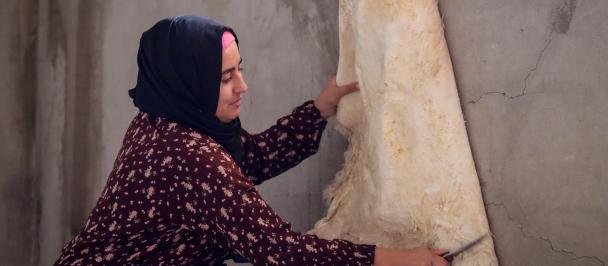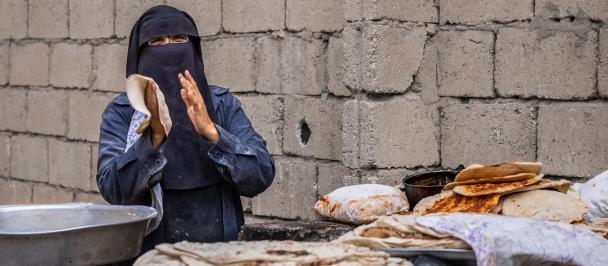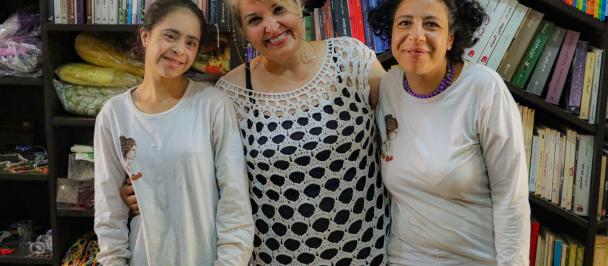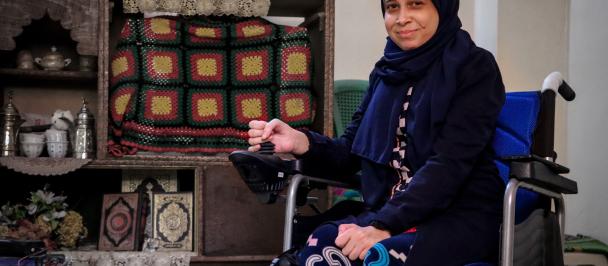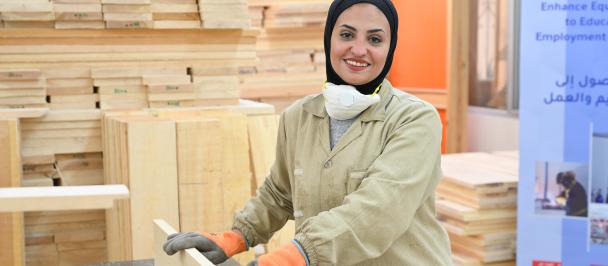Stitching Your Way through the Tailoring Business in Homs
February 15, 2023
Mazen is 65 years old from Al Khaldiyeh in Homs, Syria. Like many others, he was impacted by the crisis and its repercussions. Mazen and his family were displaced. They left their home to Daria in Damascus, where Mazen worked as a tailor to support his wife and children.
“We went back to Homs when the city was opened again, but we stayed in a shelter,” Mazen said. Being displaced affected his family and children, who had to leave school during that period. Mazen was his children’s biggest supporter, and, in time, he pushed them to pursue their education because of his belief that education is a beacon of hope. “I love learning. Education is the most powerful weapon a girl could have towards a better future,” Mazen explained.
Mazen and his family were finally able to return home, but their house was damaged because of the war. Mazen is still rehabilitating it until this day – four years after his return.
Mazen used to sell clothes and in time, he started making them. “My ambition was to make a career out of tailoring. I wanted to manufacture and sell clothes rather than buy them”. He took the first step with his sister’s help. He started sewing clothes using a rented sewing machine. He bought the same machine with five others out of the profit he made from selling what he produced from clothes. His first attempt progressed to become his primary source of income; where he also hired seamstresses to work with him in his small workshop. “Hearing the sound of the sewing machine became a hobby”.
Mazen heard about the livelihoods revitalization project, funded by the United Nations Central Emergency Response Fund (CERF) through the United Nations Development Programme (UNDP) in Syria. The project aims to reactivate and revitalize livelihoods through employment and self-employment support; targeting youth, women and PWDs. The project focused on demand-driven vocational, skills training, employment support services, youth entrepreneurship development and start-up support services.
Mazen decided to give it a try in hope that he could go back to his old profession, have his own business and hear the sound of the sewing machines again. He underwent several training sessions, as did the rest of the people who benefited from the CERF funded project. These trainings covered feasibility studies, planning, procurement, etc. His 32 years of experience did not stop him from acquiring knowledge. Mazen still has his ambition set on advancing his business and owning 30 sewing machines instead of the three he already has.
“I cannot describe how overwhelmed I am. I never expected that the day would come when I will go back to being a tailor”, Mazen describes his feelings of joy. “I was over the moon. Sitting behind my own sewing machines and seeing my name on them again”.

 Locations
Locations